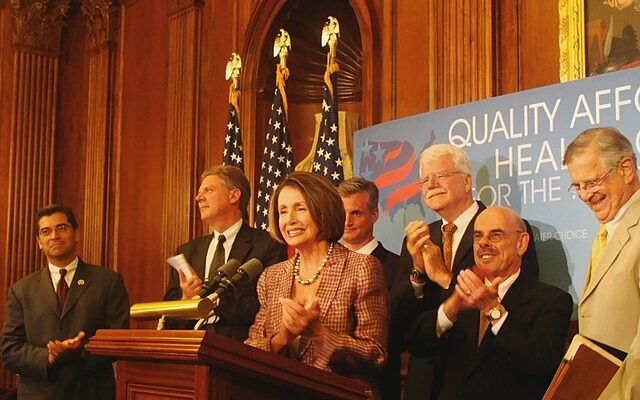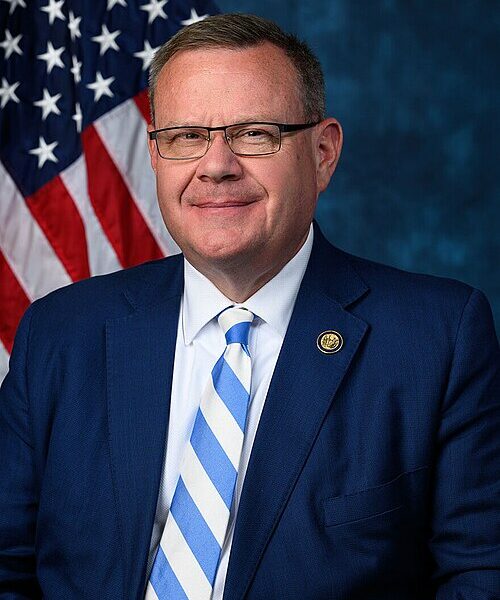
As the nation’s longest government shutdown nears its end without an extension of expanded Affordable Care Act (ACA) premium subsidies, Republican lawmakers are mounting a counteroffensive — proposing new ways to reroute federal health funds directly to Americans rather than insurance companies.
The stalemate, which has crippled federal operations for over 40 days, arose from Democrats’ insistence on prolonging the enhanced subsidies enacted in 2021. Those benefits are set to expire at year’s end. GOP leaders argue that the existing framework funnels billions into insurer profits and are now drafting measures to empower consumers instead.
The House is expected to approve a Senate-passed bill reopening the government without renewing the subsidies. Senate Majority Leader John Thune, a Republican from South Dakota, has said he will allow a vote on the Democratic proposal, though it is unlikely to survive Republican opposition.
“Obamacare, since its inception, has consistently seen premiums go up for the people in the individual marketplace by amounts that are just … not sustainable,” Thune told reporters Monday. “We need some fixes. We need some solutions.”
According to the Congressional Budget Office, continuing the expanded subsidies could add up to $350 billion to federal expenditures over the next decade. Republican lawmakers emphasize that individual-market premiums have nearly doubled in pace compared with employer-based group plans since 2014 — evidence, they say, that the ACA’s structure is flawed, writes The Daily Caller.
Leading the Republican initiative is Senator Bill Cassidy, a Republican from Louisiana, who chairs the Senate Health, Education, Labor, and Pensions Committee. Cassidy proposes redirecting subsidy dollars into Flexible Spending Accounts (FSAs), allowing individuals to pay health expenses with pre-tax income.
“What I’ve been advocating is that we redirect the subsidies into Flexible Spending Accounts, and it could be the same amount of money per person, but it would be in an FSA, not going to the insurance company,” Cassidy said. “When you send it to the insurance company, they take 20% of that for overhead and profit — pretty high carrying cost. You send it to the patient, almost all of it’s going to go for direct health care.”
Senator Rick Scott, a Republican from Florida, is preparing a parallel bill to direct federal funds into Health Savings Accounts (HSAs), arguing that such accounts would heighten competition and lower costs. President Donald Trump has thrown his support behind these efforts, urging Republicans to “transfer funds from insurers to individuals” and warning that extending the subsidies would hand insurance companies “another huge payday at the expense of the American people.”
Although no single GOP proposal has gained full leadership endorsement, the Paragon Health Institute — a Washington-based policy think tank — has long advocated this approach. Its 2022 report urged reinstating Cost-Sharing Reduction (CSR) payments, halted in 2017, which required insurers to discount out-of-pocket expenses for low-income enrollees. The CBO projects that reviving CSR payments could lower premiums and reduce the federal deficit by about $31 billion.
“The whole policy combination would lower premiums, lower deficits and give lower-income Americans more control over their health insurance,” Paragon Health Institute President Brian Blase told The Daily Caller. “It is the best thought-out immediate policy that can be put in place to align with the president’s vision.”
In a stunning Twitter thread, Blase recently revealed how much fraud has been perpetrated through the ACA exchanges to benefit insurance companies.
A teachable moment today for @RepJeffries, who was not aware of the massive amount of improper and phantom enrollment in the ACA exchanges
We summarized the issue here: https://t.co/yo70oH5ZLe
Bottom line: 6.4m improper enrollees in '25 & 35% of enrollees with $0 claims
🧵1/x
— Brian Blase (@brian_blase) November 10, 2025
In the House, Representatives Greg Steube and Kat Cammack, both Republicans from Florida, introduced a bill earlier this year to permit direct HSA contributions for eligible individuals. A previous GOP package containing CSR provisions was blocked by the Senate’s liberal-leaning parliamentarian.
Democrats, however, contend the Republican proposals amount to a thinly veiled effort to dismantle the ACA. “The future is unpredictable, but we need to continue our fight unequivocally, unyieldingly for affordable health care insurance through extending the subsidies and other measures under the ACA,” Senator Richard Blumenthal, a Democrat from Connecticut, said Monday. “Republicans have a reflexive obsession with repealing or destroying the ACA.”
Cassidy pushed back, saying the GOP’s approach is narrowly focused. “What we’re talking about — this is not rewriting big portions of the Affordable Care Act,” he said. “We’re looking very specifically at what we can do for Plan Year 2026.”
Blase added that broader reforms would require more time and consensus. Still, some Republicans welcome the political confrontation. “If they don’t want to take this money away from insurance companies and flow it back to the consumer, that’d be a great fight to have,” said Senator Lindsey Graham, a Republican from South Carolina.
[Read More: Kennedy Heir To Run For Congress Against Mom’s Wishes]











